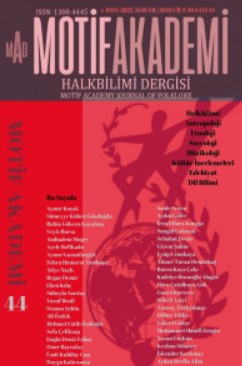ULUSÖTESİ GÖÇ, KİMLİK VE AİDİYET: İSVEÇ ALEVİLERİ ÖRNEĞİ
TRANSNATIONAL MIGRATION, IDENTITY AND BELONGING: THE CASE OF THE SWEDISH ALEVIS
Author(s): Osman Sahin, Ali ÖzdekSubject(s): Sociology of Culture, Migration Studies, Sociology of Religion, Identity of Collectives
Published by: Motif Halk Oyunları Eğitim ve Öğretim Vakfı
Keywords: Transnationalism; Diaspora; Migration; Alevism; Swedish Alevis;
Summary/Abstract: As one of the religious forms of Anatolian cultural heritage, Alevism has always been at the center of faith-based debates in the public sphere, and Alevis have lived their faith in isolation by hiding themselves in peripheral areas due to historical reasons. Alevis, who have had a hard time with the pressure on their belief throughout the historical process, have protected their teachings despite the negativities and have made great efforts to keep their other faith practices, especially the cem and semah rituals alive. The desire of Alevis to protect their religious heritage continued in the transnational areas they migrated fom the Anatolia as well, and they tried to keep their cultural assets alive in European countries with the diasporas they created. In this study, issues such as how Alevism is shaped in Sweden in the context of cultural identity and transnationality, how Swedish Alevis transfer their cultural codes as a transnational immigrant religious community, and the importance of faith practices in relations with their homeland are tried to be conveyed from the perspective of Swedish Alevis. The aim of the research is to reveal what kind of a cultural construction process was experienced in Sweden and what kind of a transnational Alevi identity is formed consequently. In the study, which lasted 3 years in a netographic environment and concluded with interviews, observations and document analyzes, the qualitative research method and cultural analysis design were used, and the paradigm shifts that led to the emergence of the theory of transnationality and the role of music and dance practices in the cultural construction process of immigrants were focused on. As a result, it has been tried to reveal how Alevis, who form a strong diaspora in Sweden, shape an Alevi identity in their new homeland as a transnational immigrant religious community.
Journal: Motif Akademi Halkbilimi Dergisi
- Issue Year: 16/2023
- Issue No: 44
- Page Range: 1727-1751
- Page Count: 25
- Language: Turkish

